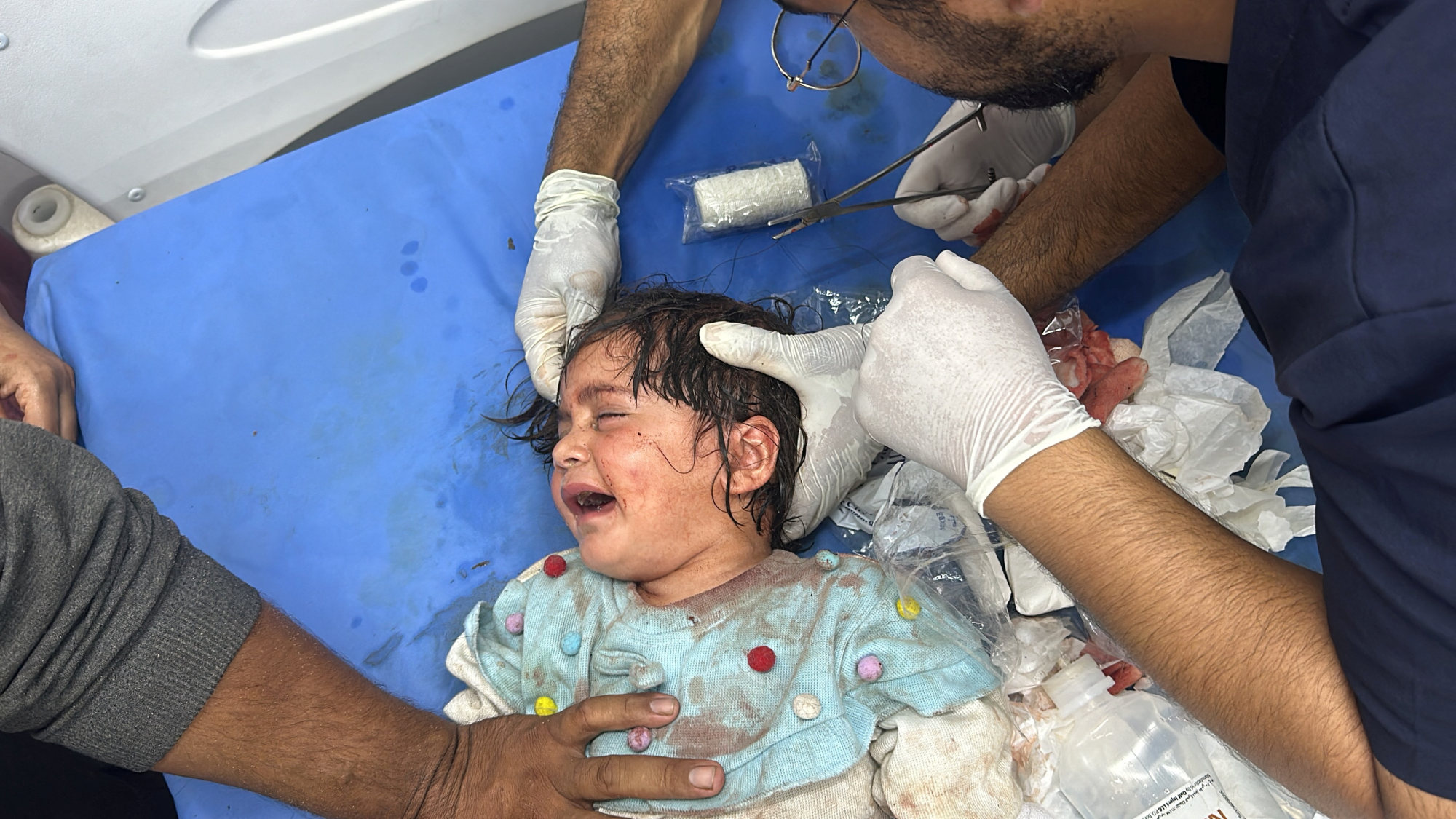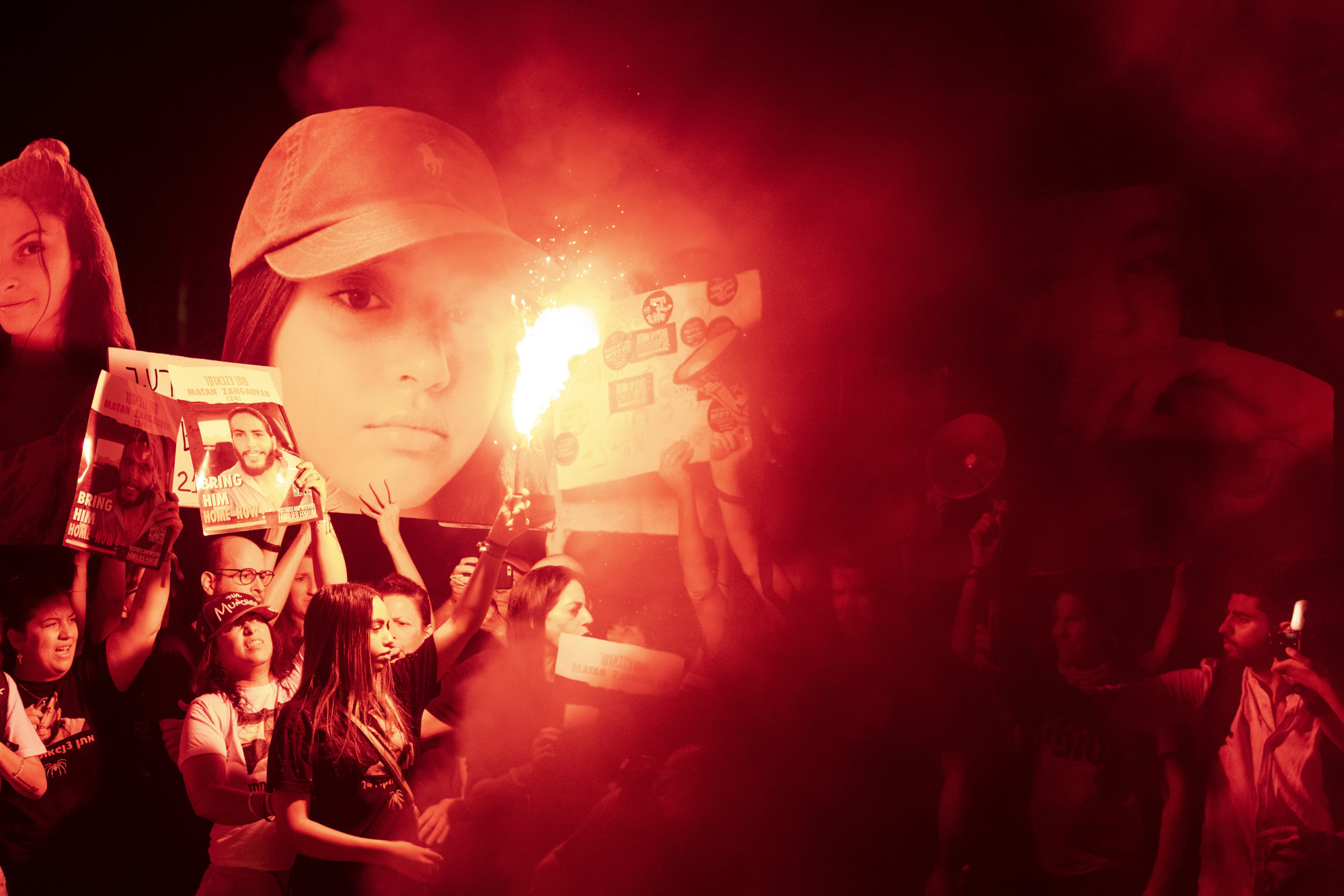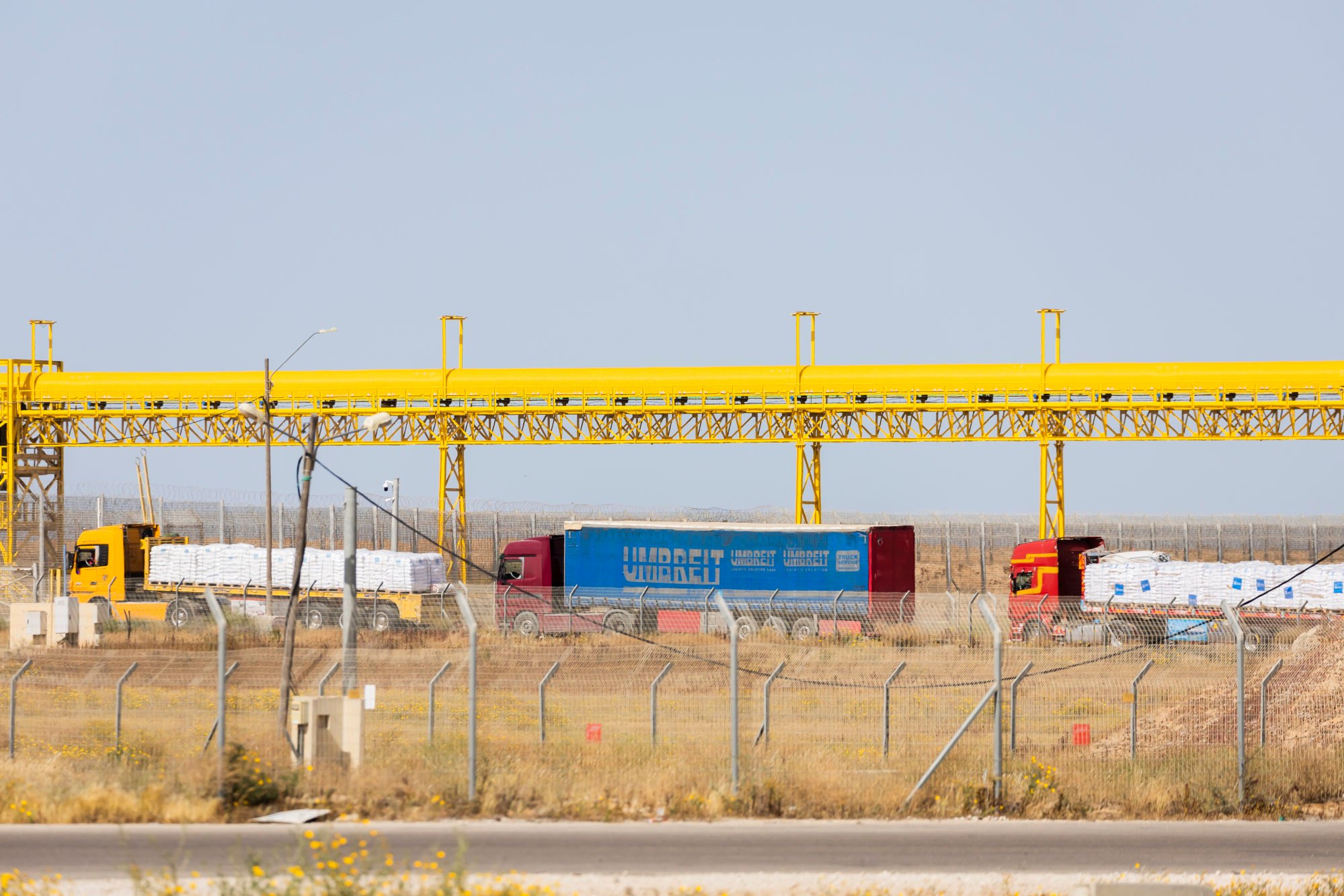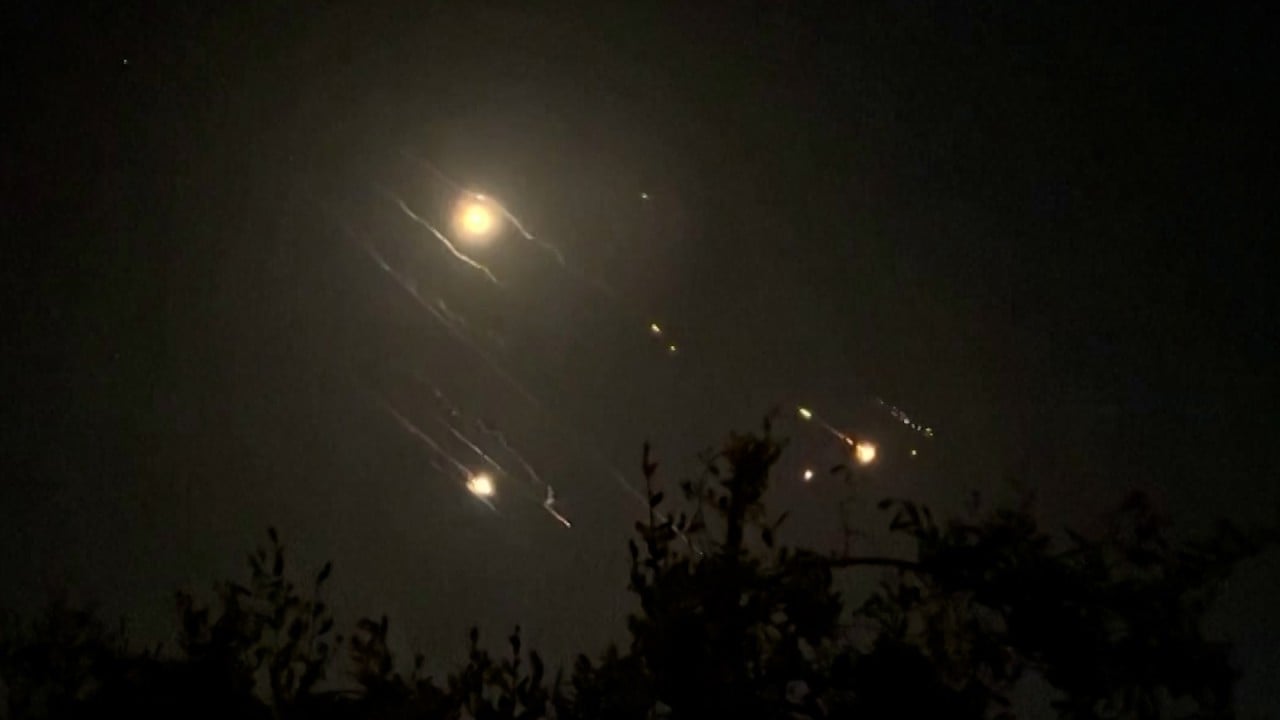The strike took place in Tel al-Sultan neighbourhood in western Rafah, where thousands of people were taking shelter after many fled the eastern areas of the city where Israeli forces began a ground offensive over two weeks ago.
The International Committee of the Red Cross said its field hospital in Rafah was receiving an influx of casualties, and that other hospitals also were taking in a large number of patients.
“The air strikes burnt the tents, the tents are melting and the people’s bodies are also melting,” said one of the residents who arrived at the Kuwaiti hospital in Rafah.
A number of the projectiles were intercepted, it said. There were no reports of casualties.
In a statement on its Telegram channel, the Hamas al-Qassam Brigades said the rockets were launched in response to “Zionist massacres against civilians”.
Rafah is located about 100km (60 miles) south of Tel Aviv.
Israel says it wants to root out Hamas fighters holed up in Rafah and rescue hostages it says are being held in the area, but its assault has worsened the plight of civilians and caused an international outcry.
On Sunday, Israeli strikes killed at least five Palestinians in Rafah, according to local medical services. The Gaza health ministry identified the dead as civilians.
Israeli war cabinet minister Benny Gantz said the rockets fired from Rafah “prove that the [Israel Defence Forces] must operate in every place Hamas still operates from”.
Defence Minister Yoav Gallant held an operational assessment in Rafah where he was briefed on “troops’ operations above and below the ground, as well as the deepening of operations in additional areas with the aim of dismantling Hamas battalions”, his office said in a statement.
Itamar Ben Gvir, a hardline public security minister who is not part of Israel’s war cabinet, urged the army to hit Rafah harder. “Rafah with full force,” he posted on X.

Fighting also continued in the northern Gaza area of Jabaliya, the scene of intense combat earlier in the war. During one raid, the military said it found a weapons storage site with dozens of rocket parts and weapons at a school.
It denied Hamas statements that Palestinian fighters had abducted an Israeli soldier.
Hamas media said an Israeli strike on a house in a neighbourhood near Jabaliya killed 10 people and wounded others.

An official with knowledge of the matter said a decision had been taken to resume the talks this week based on new proposals from Egyptian and Qatari mediators, and with “active US involvement”.
However, a Hamas official played down the report, telling Reuters: “It is not true.”
Netanyahu’s war cabinet would discuss the new proposals, his office said.
A second Hamas official, Izzat El-Reshiq, said the group had not received anything from the mediators on new dates for resuming talks as had been reported by Israeli media.
Reshiq restated Hamas’s demands, which include: “Ending the aggression completely and permanently, in all of Gaza Strip, not only Rafah.”
While Israel is seeking the return of hostages, Netanyahu has repeatedly said the war will not end until Hamas, which is sworn to Israel’s destruction, is eliminated.

Israel has faced calls to get more aid into Gaza after more than seven months of a war that has caused widespread destruction and hunger in the enclave.
Khaled Zayed of the Egyptian Red Crescent told Reuters 200 trucks of aid, including four fuel trucks, were expected to enter Gaza on Sunday through Kerem Shalom.
The Rafah crossing has been shut for almost three weeks, since Israel took control of the Palestinian side of the crossing as it stepped up its offensive.
Egypt has been increasingly alarmed at the prospect of large numbers of Palestinians entering its territory from Gaza and has refused to open its side of the Rafah crossing.
Israel has said it is not restricting aid flows and has opened up new crossing points in the north as well as cooperating with the United States, which has built a temporary floating pier for aid deliveries.


